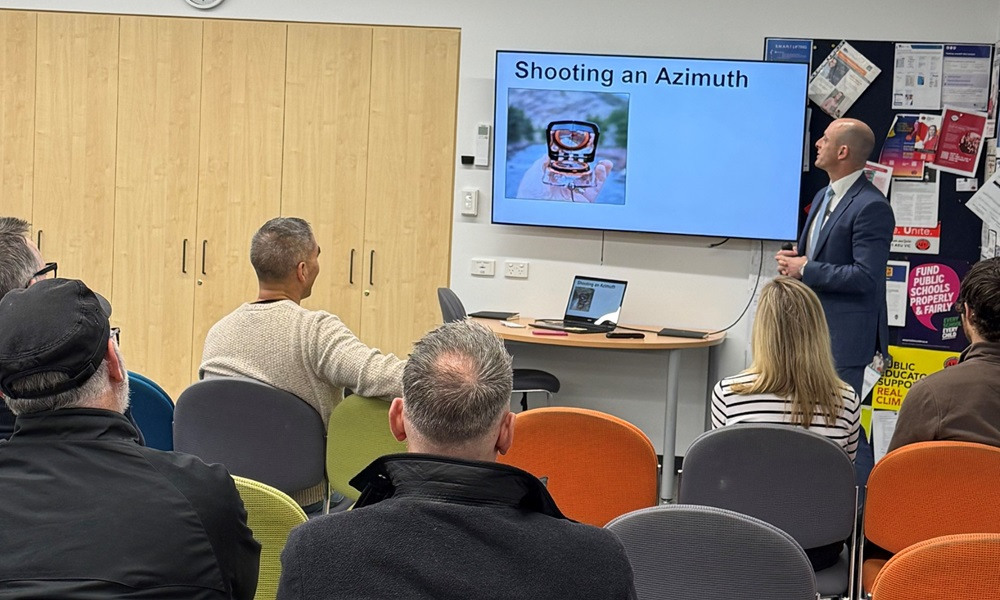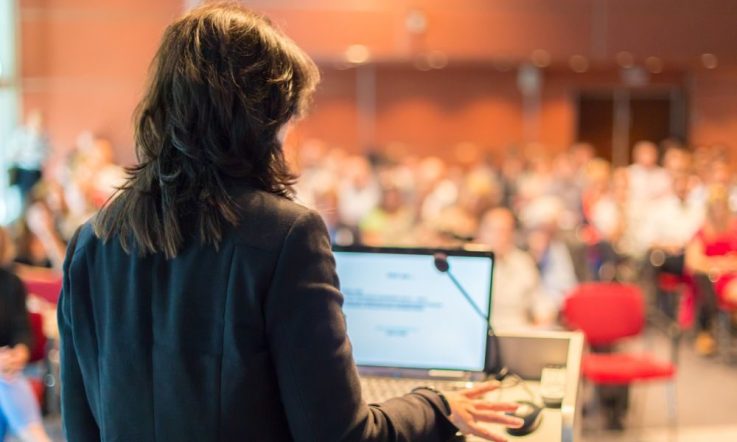Research shows that outstanding teachers and school leaders regularly share their skills, knowledge, expertise and best practice with others, both within and across schools and learning networks.
For 3 hours every Friday, Templestowe Heights Primary School in Victoria opens its doors to educators from other schools to share their leadership expertise and to watch their classrooms in action. To date, they have hosted over 200 other schools, not only from across Victoria, but interstate and international visitors as well – representing all school sectors, as well as regional and remote schools.
Templestowe Heights Primary School implemented explicit teaching into their program 4 years ago. With all Victorian government schools moving to structured phonics and explicit instruction for prep to grade 2 students, many visitors are keen to see the approach in action.
Principal Rhys Coulson says for these schools, they first need to see what the model looks like before they go down their own change process.
‘During visits, schools typically want to know how their teaching and learning model can be adapted. How literacy and mathematics lessons look in practice. How curriculum design can be changed to reflect the science of learning principles. And how their behaviour curriculum, including the most effective conditions for learning, can be supported as well,’ he says.
Visiting Templestowe Heights
On any given week, the school can host up to 35 people during the visit, representing up to 30 school leadership teams. Often it is school principals who come along, but there have been instances where a whole school’s staff come too. Templestowe have a full-time staff member dedicated to hosting and managing these visits, to ensure it is beneficial for everyone involved.
It grew through word of mouth, Coulson says. ‘We don't advertise it, we don't promote it, but we just know there are so many schools out there just wanting some support in how they can start their journey on explicit teaching or whatever it might be. And we don't say that we are the best model. We just say we are a model that you can look at and see and take away – and then go and use it in your own context and develop it and modify it that way,’ he says.
Coulson says there are some typical questions visitors always want to know: how did you start? What knowledge did you need to build? What mistake did you make along the way? And, they always want to take some curriculum documentation back to their schools with them. He says his school is always happy to share this information with the visiting educators.
Throughout the sessions, visitors are taken through many classrooms in a building. Coulson says the host teachers and students are very accustomed to the visitors, and it doesn’t create any big distractions for them.
‘It never impacts the learning going on in the classroom,’ he shares. ‘But it's interesting, what visitors come away with is always not necessarily what they wanted to look for. So, sometimes schools will visit and they want to look at what a maths lesson looks like, but they will come away going, “I can't believe this is the way you set up your classrooms to maximise attention and minimise distraction”.’
Beyond the weekly school visits, Templestowe Heights has also hosted 4 whole-day conferences at the school, each taking place on a Saturday. These sold-out events cover mathematics, and the most recent one was on behaviour. Staff from Templestowe Heights Primary School presented to the 150 educators attending, alongside other distinguished presenters. Coulson says the conferences have offered his staff another opportunity to share their expertise and build on their own skills and experience.
The benefits of sharing expertise
Coulson says that sharing their expertise has given his staff a lot of confidence in their own practice and trust that they’re making a difference to student learning.
‘It's given our teachers a lot of confidence that schools are visiting us – not because we think we're the best – but schools are visiting us because they want to take something away,’ he says.
‘I just love watching and seeing all of our staff grow professionally. I get a really big kick out of that. It has enabled many of our staff to present at many conferences. They consult with other schools. They're writing their own curriculum. We had a couple of staff that wrote the lesson plans for the Victorian Department of Education. So, it has opened up a lot of doors for our leadership team here,’ he says.
For Coulson as the school leader, he says he is always keen to support other schools on their journey. ‘We are in the position we are in because of other schools that were a little bit further along in their journey that have supported us. So, if you can get some information or build some of your own knowledge that can then help you back at your own school, that's what it's all about. And I think as a system, that's what I always want.’
The staff at Templestowe Heights have also been fortunate to have visits from leading educational experts in the field of speech pathology, linguistics and cognitive science.
‘As recently as last week, leading expert on cognition, Dr Carl Henrick, as well as SOLAR Lab lead Professor Pamela Snow from La Trobe University, Linguistic expert Dr Lyn Stone and StepLab lead-coach Rory McCaughey all visited our school. They undertook a learning walk, visiting all classrooms and providing a feedback session afterwards on their observations,’ Coulson shares.
As a result of their efforts to share their expertise, Templestowe Heights was invited to be one of 10 initial host schools in La Trobe University’s new Momentum Schools research project. This project will investigate how best to support the shift to explicit instruction, linking schools that have successfully adopted explicit instruction with others just starting the transition.
‘It's an honour to be recognised as a host school for the Momentum Project,’ Coulson says. ‘For us, when we commenced our journey, we needed to see what was possible by visiting other schools that were further along than us.
‘By being part of Momentum, our staff honestly enjoy supporting other schools that are commencing or consolidating their implementation of explicit teaching. It has allowed us to distil our own narrative to ensure other schools can be equipped with the right details to help them back in their contexts.’
Think about the schools in your local community. How often do you collaborate with them to share your expertise? Is there an opportunity to build on these relationships or share resources?
How often do you open your classroom to allow other educators to watch your practice in action? Have you found this to be a beneficial experience? How could you improve the way you share your expertise with others?



